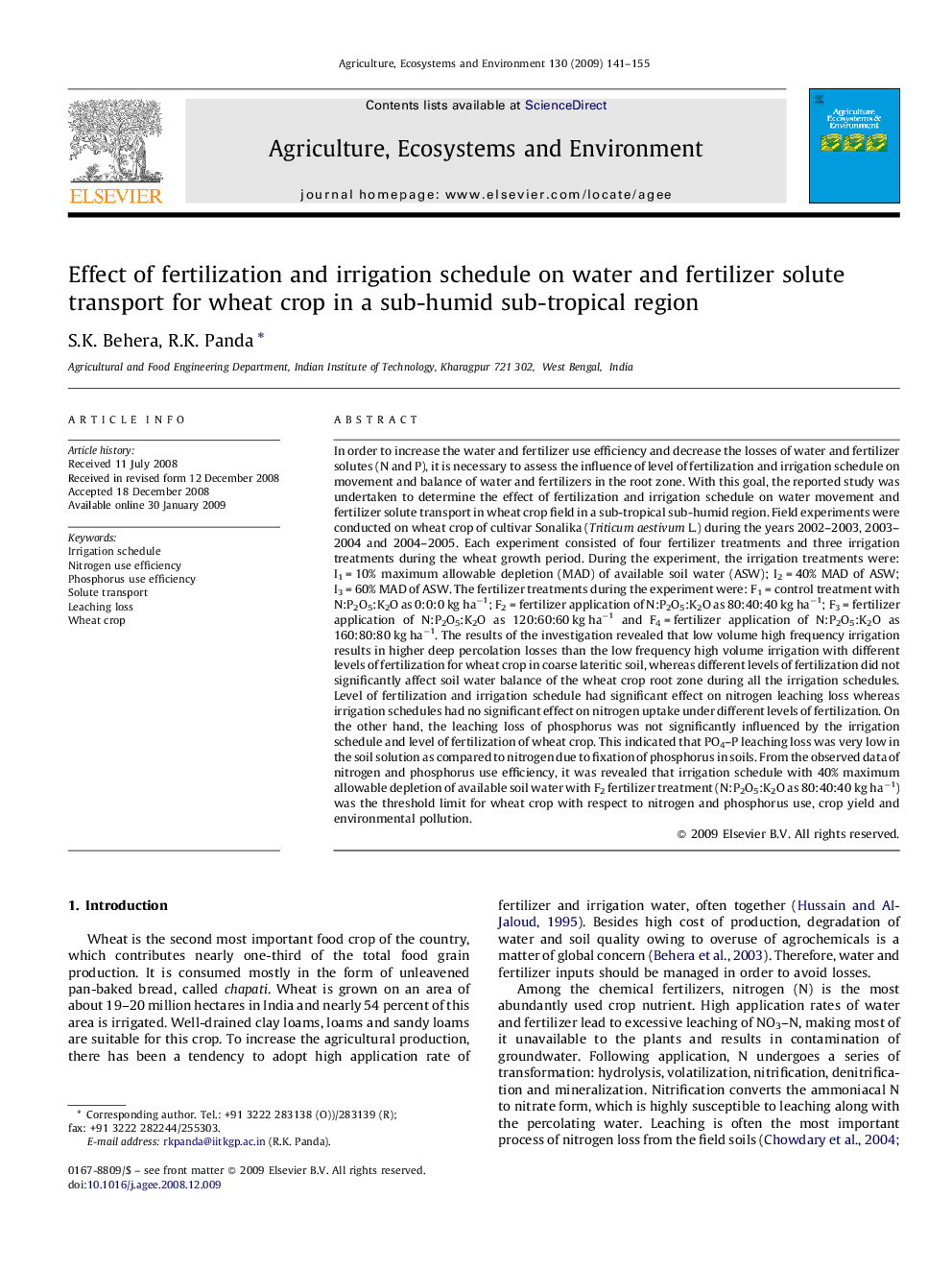| کد مقاله | کد نشریه | سال انتشار | مقاله انگلیسی | نسخه تمام متن |
|---|---|---|---|---|
| 2415281 | 1552128 | 2009 | 15 صفحه PDF | دانلود رایگان |

In order to increase the water and fertilizer use efficiency and decrease the losses of water and fertilizer solutes (N and P), it is necessary to assess the influence of level of fertilization and irrigation schedule on movement and balance of water and fertilizers in the root zone. With this goal, the reported study was undertaken to determine the effect of fertilization and irrigation schedule on water movement and fertilizer solute transport in wheat crop field in a sub-tropical sub-humid region. Field experiments were conducted on wheat crop of cultivar Sonalika (Triticum aestivum L.) during the years 2002–2003, 2003–2004 and 2004–2005. Each experiment consisted of four fertilizer treatments and three irrigation treatments during the wheat growth period. During the experiment, the irrigation treatments were: I1 = 10% maximum allowable depletion (MAD) of available soil water (ASW); I2 = 40% MAD of ASW; I3 = 60% MAD of ASW. The fertilizer treatments during the experiment were: F1 = control treatment with N:P2O5:K2O as 0:0:0 kg ha−1; F2 = fertilizer application of N:P2O5:K2O as 80:40:40 kg ha−1; F3 = fertilizer application of N:P2O5:K2O as 120:60:60 kg ha−1 and F4 = fertilizer application of N:P2O5:K2O as 160:80:80 kg ha−1. The results of the investigation revealed that low volume high frequency irrigation results in higher deep percolation losses than the low frequency high volume irrigation with different levels of fertilization for wheat crop in coarse lateritic soil, whereas different levels of fertilization did not significantly affect soil water balance of the wheat crop root zone during all the irrigation schedules. Level of fertilization and irrigation schedule had significant effect on nitrogen leaching loss whereas irrigation schedules had no significant effect on nitrogen uptake under different levels of fertilization. On the other hand, the leaching loss of phosphorus was not significantly influenced by the irrigation schedule and level of fertilization of wheat crop. This indicated that PO4–P leaching loss was very low in the soil solution as compared to nitrogen due to fixation of phosphorus in soils. From the observed data of nitrogen and phosphorus use efficiency, it was revealed that irrigation schedule with 40% maximum allowable depletion of available soil water with F2 fertilizer treatment (N:P2O5:K2O as 80:40:40 kg ha−1) was the threshold limit for wheat crop with respect to nitrogen and phosphorus use, crop yield and environmental pollution.
Journal: Agriculture, Ecosystems & Environment - Volume 130, Issues 3–4, April 2009, Pages 141–155